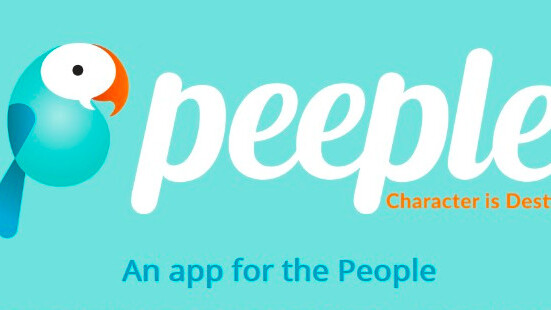
Launching in November, the Peeple app will let you rate everyone you know. Yeah, everyone.
Following an article by the Washington Post, revealing the real-life burn book, it has rapidly become one of the most hated apps on the internet (this week).

Founded by Julia Cordray and Nicole McCullough, the pair launched an online documentary series on August 9, following their hopeful 90 day journey of getting funding in Silicon Valley and bringing their “dream” to fruition. However, with some videos having less than 100 views, it wasn’t until the Washington Post interview was published that anyone really started to care what the pair were up to.
https://youtu.be/x-PmOPwP4tY
Although the app itself follows the formula of thousands of social apps – rating everything from your dinner to your bowel movements – it poses a very scary vision; Imagine everything you ever did was suddenly open to be reviewed online, without your knowledge. I mean, did McCullough and Cordray learn nothing from the tragedies of apps like ask.FM and Secret?
Whether their intentions are good or not, it really doesn’t feel well thought out. The pair have essentially created defamation-as-a-service.
And people are naturally worried. Unlike Cordray and McCullough who presumably are happy with the app’s open door policy and have nothing to hide, other people don’t feel the need to seek public approval for their life choices or behaviour.
As a self-described “trendy lady”, Cordray told the Washington Post that the app is about showcasing your character online. This is slightly different to what McCullough said – that as a mother of two, she wanted to be able research and decide who to trust with her kids.
Both are legitimate things to want to do, but we can showcase our characters on Facebook, Twitter and Instagram perfectly fine and still maintain a level of control over what can and can’t be seen. And when it comes to professionally researching people – LinkedIn and Google are perfectly sufficient tools, which can also be used in conjunction with other referencing tools and social media profiles to get a rounded image of a person.
When you drill into the app’s terms and conditions, it just gets worse. In the FAQ section, it states that you cannot remove yourself from the Peeple database, but the company “may consider this feature in the future.”
This is a real app. It needs not to be. #peeple pic.twitter.com/QpeDnwhujp
— christine teigen (@chrissyteigen) October 1, 2015
The site is quick to address concerns of negative reviews stating that they don’t go live immediately and won’t be seen publicly, only to people who sign up for the app. I struggle to see how that’s comforting. That means there is nothing stopping anyone from going on and bad mouthing someone else and the person could remain completely oblivious. Isn’t that like the definition of what bullying is?
And for an app that values public discussion and opinion, its founders appear to be backtracking on that idea, as an image circulating shows Cordray allegedly asking how to shut down comments on the app’s Facebook page.
Founder of #Peeple, an app designed to collect unsolicited feedback doesn't appear to like unsolicited feedback. pic.twitter.com/MmYZW3oHw4
— Sharon O'Dea (@sharonodea) October 1, 2015
They haven’t taken kindly to opinion pieces by journalists or questions about their alleged government funding either.
https://twitter.com/peepleforpeople/status/647293398366289920
https://twitter.com/peepleforpeople/status/647494711444271104
I mean, if the app was live, Mike Morrison could potentially have just gone and wrote his opinion piece on there and neither Cordray or McCullough could contest that.
Interestingly, the pair’s account also posted this image of a quote from Theodore Roosevelt.
https://twitter.com/peepleforpeople/status/648329862239776768
It says that criticisms don’t belong to the person who makes them, but the “man who is actually in the arena.” Exactly, so nobody has a right to criticise someone for trying and that’s exactly what Peeple is encouraging its future users to do.
Most hot new startups become that way because they solve a problem. Peeple solves nothing and creates more problems than it’s worth. The publicity might seem satisfying now, but in the long run, the founders have done themselves a disservice.
Get the TNW newsletter
Get the most important tech news in your inbox each week.





